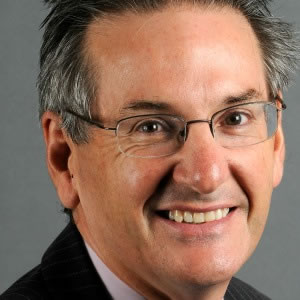Break silence on depression: Justice Marshall
The sole superior court judge to speak publicly about his lifelong struggle with mental illness has called on junior practitioners to share their stories.

Federal Court judge and mental health advocate Justice Shane Marshall (pictured) spoke to Lawyers Weekly ahead of his keynote address at the Australian Law Students' Association annual conference, to be held in Sydney from 6 to 12 July.
“It would be an even more powerful message for young lawyers … to say: ‘Look, I have had these issues, but I’ve kept going and if you look after your mental health, take time out to have interests outside the law, make sure you get enough sleep, think of yourself as a person not just a lawyer, you can still succeed in the law’,” he said.
Justice Marshall recognises that telling people you are a lawyer with a mental health problem is a courageous thing to do.
However, he admits his own “coming out” in 2013 was something of an accident. “It was at a Wellbeing and the Law Foundation launch, shortly after I had a relapse with depression and was struggling with new antidepressants that I wasn’t reacting well to,” he said. “I wasn’t in a good place and I think I inadvertently ‘came out’.”
“The headline read something like ‘Judge comes out [as having] battled with depression in an effort to help others in the profession’. The connotation was that it was brave.
“It probably should have said something like, ‘Naive judge comes out’,” he laughed. “I didn’t know there was someone from the press there, but fortunately it was a very kind article.”
He agreed that the media have probably been waiting for someone to step out and take the lead on this issue, saying that this “is probably why they haven’t crucified me”.
“Just about everybody who has covered the issue has been very gentle with me, which I appreciate.”
Justice Marshall has had a distinguished career, first at the Victorian Bar and then as a judge on the Federal Court and the Industrial Relations Court.
He was diagnosed with depression in 2008, but says he has probably been living with the condition since he was 19 and two years into his combined economics and law degree at Monash University.
“[As a student] I was very anxious a lot of the time, but I suppose getting married at the end of third year probably gave me a bit of stability in the final two years.”
Justice Marshall said he received little support at the time from the faculty. “I probably wasn’t even aware that I had the condition. I just thought it was normal.”
He said law students today are in an even worse position, with a recent survey showing a significant proportion of students think depression is just “the price of becoming a lawyer”.
“That is very disturbing. [Depression] is a big issue. There is a lot more pressure on today’s law students, because there are many more universities, fewer jobs, a lot more intense pressure to get seasonal clerkships.
“And the pressure-cooker environment of junior practice with six-minute billing increments and partners being very demanding, [means] it can be a hotbed of competition for jobs then a hotbed of competition to secure ongoing, satisfying jobs.”
Research conducted by the Tristan Jepson Memorial Foundation (TJMF) and the University of Sydney in 2009 showed that law students suffer severe psychological distress at almost twice the rate of medical students.
Justice Marshall said the stigma around mental illness has been reduced through the efforts of groups such as TJMF and law student societies, but that more must be done.
“There are some firms that realise they do not want their staff depressed, because it is not healthy for their office,” he said.
“[But] I shouldn’t be able to cite just a handful of firms that are doing really well in this area. They shouldn’t stand out. It should just be expected, a norm.”